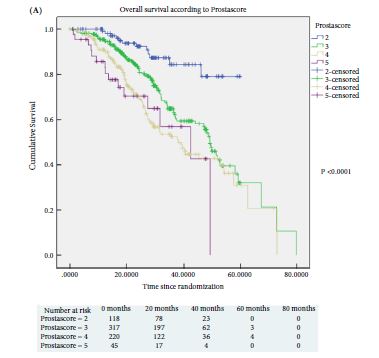Article of the week: External validation of the prostascore model in metastatic hormone‐sensitive PCa patients recruited to the CHAARTED study
Every Week, the Editor-in-Chief selects an Article of the Week from the current issue of BJUI. The abstract is reproduced below and you can click on the button to read the full article, which is freely available to all readers for at least 30 days from the time of this post.
In addition to the article itself, there is an accompanying editorial written by a prominent member of the urological community. This blog is intended to provoke comment and discussion and we invite you to use the comment tools at the bottom of each post to join the conversation.
If you only have time to read one article this week, it should be this one.
External validation of the prostascore model in patients with metastatic hormone‐sensitive prostate cancer recruited to the CHAARTED study
Omar Abdel‐Rahman* and Winson Y. Cheung†
*Clinical Oncology Department, Faculty of Medicine, Ain Shams University, Cairo, Egypt; †Department of Oncology, Tom Baker Cancer Centre, University of Calgary, Calgary, AB, Canada
Abstract
Objective
To externally validate ‘prostascore’ in patients with metastatic hormone‐sensitive prostate cancer recruited to the phase III CHAARTED study.
Methods
We conducted a retrospective analysis of the prospectively collected data from patients with metastatic hormone‐sensitive prostate cancer in the CHAARTED study, a phase III multicentre study conducted between 2006 and 2014. The main outcome of the present analysis was overall survival, assessed using Kaplan–Meier analysis or log‐rank testing, in the whole cohort according to different prostascores. In addition, patients with different scores were compared according to treatment arm.
Fig 1. Kaplan-Meier curves for (A) overall survival according to Prostascore.
Results
A total of 702 cases had complete baseline data, allowing calculation of prostascores and inclusion in the present analysis. Overall survival was assessed according to prostascores in the entire cohort and the P value for overall survival trend was significant (P < 0.001). Likewise, progression‐free survival was assessed according to prostascores in the entire cohort and the P value for progression‐free survival trend was also significant (P < 0.001). Overall survival comparisons according to treatment arm were evaluated among different prostascores. Notably, the P value for overall survival difference was not significant for a prostascore = 2 (P = 0.702), but was significant for scores of 3, 4 and 5 (P < 0.05). The cause‐specific hazard ratio for cancer‐specific survival (adjusted for treatment arm used) was also evaluated. The P value for pairwise comparisons between different scores was significant (P < 0.01) except for the comparison between scores 4 and 5.
Conclusion
The present study further confirms the role of prostascore in predicting the outcomes of patients with metastatic hormone‐sensitive prostate cancer and also highlights its potential role in therapeutic decision‐making.

